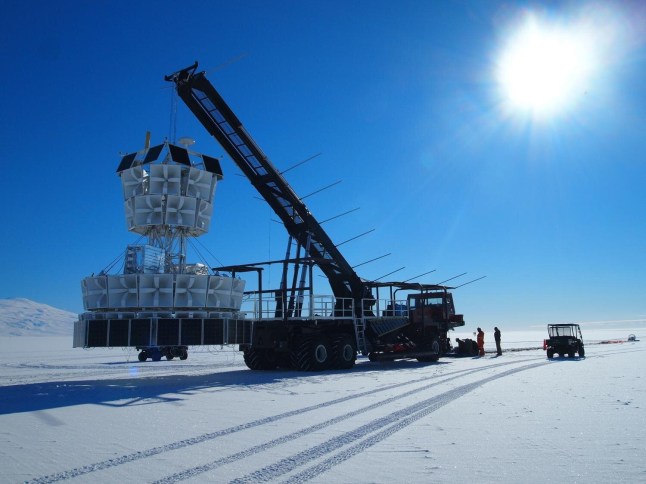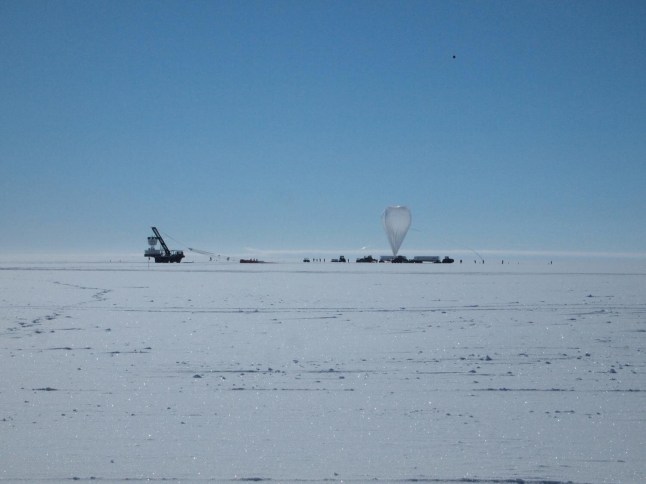Radio pulses are coming from below Antarctica - scientists can't explain why
2025-06-17 IDOPRESS

Scientists have discovered mysterious radio pulses coming from beneath the ice in Antarctica (Picture: Stephanie Wissel/Penn State)
Scientists have detected a series of unusual signals from beneath the ice in Antarctica.
Researchers from the Antarctic Impulsive Transient Antenna (ANITA) were baffled to find the signals coming from the ground at seemingly impossible angles.
The study used a range of instruments mounted on air balloons flown above the ice-packed continent
Publishing their findings in Physical Review Letters,scientists believe the discovery suggests the existence of unknown types of particles or interactions.
The steep angles,at around 30 degrees below the ice,cannot be explained by the current understanding of particles.
Stephanie Wissel,associate professor of physics,astronomy and astrophysics,said researchers were struggling to explain how the signals reached the detectors through thousands of kilometres of rock.

Researchers used instruments mounted on air balloons to pick up the strange signals,whichdon’t match the profile of standard particles (Picture: Stephanie Wissel/Penn State)
She said: ‘It’s an interesting problem because we still don’t actually have an explanation for what those anomalies are,but what we do know is that they’re most likely not representing neutrinos.
Neutrinos are tiny particles found everywhere in the universe but are notoriously difficult to detect. They are often emitted by high-energy sources such as the Sun or major cosmic events like supernovas.
Wissel added: ‘You have a billion neutrinos passing through your thumbnail at any moment,but neutrinos don’t really interact.
‘But it’s a double-edged sword problem. If we detect them,it means they have travelled all this way without interacting with anything else. We could be detecting a neutrino coming from the edge of the observable universe.’
ANITA,one of the few detectors designed to spot tiny particles,was set up in Antarctica,where few objects can interfere with signals.

Current science can’t explain what the teams found (Picture: Getty Images)
But analysis found the pulses discovered under the ice in Antarctica are ‘anomalous’ meaning they did not match standard particle physics.
The Pennsylvania State University is now developing a more powerful detector called PUEO,which could shed more light on what the signals detected are.
Wissel said the new technology would be able to pick up both neutrinos but also more anomalies,but until then,the unknown signals were ‘one of these long-standing mysteries’.
She said: ‘My guess is that some interesting radio propagation effect occurs near ice and also near the horizon that I don’t fully understand,but we certainly explored several of those,and we haven’t been able to find any of those yet either.’
